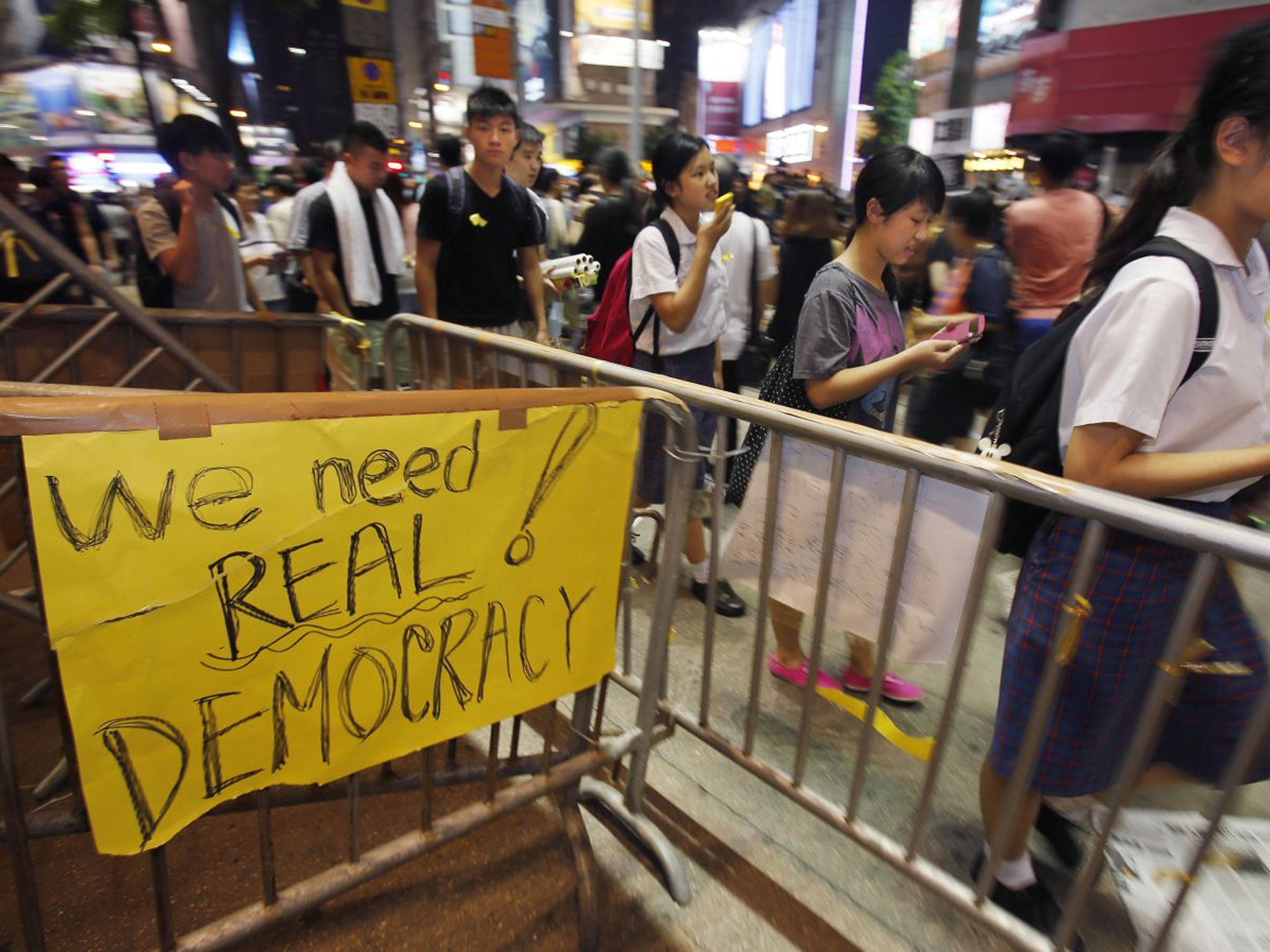Hong Kong protests explained: What do demonstrators want, and what will happen?
Hong Kong was handed back to China after 155 years of British rule. The handover agreement, signed in 1984, guaranteed Hong Kong “a high degree of autonomy except in foreign and defence affairs,” a deal known as “one country, two systems”

Your support helps us to tell the story
From reproductive rights to climate change to Big Tech, The Independent is on the ground when the story is developing. Whether it's investigating the financials of Elon Musk's pro-Trump PAC or producing our latest documentary, 'The A Word', which shines a light on the American women fighting for reproductive rights, we know how important it is to parse out the facts from the messaging.
At such a critical moment in US history, we need reporters on the ground. Your donation allows us to keep sending journalists to speak to both sides of the story.
The Independent is trusted by Americans across the entire political spectrum. And unlike many other quality news outlets, we choose not to lock Americans out of our reporting and analysis with paywalls. We believe quality journalism should be available to everyone, paid for by those who can afford it.
Your support makes all the difference.What are the protests about?
The Hong Kong Special Administrative Region has been governed by a chief executive since being handed back to China by the UK in 1997. The chief executive has been selected by a 1,200-member election committee, but in 2007 China pledged elections “by universal suffrage” in 2017. In August, Beijing said that only candidates approved by a selection committee would be allowed to stand, angering pro-democracy activists.
I thought China was a one-party communist state?
Hong Kong was handed back to China after 155 years of British rule. The handover agreement, signed in 1984, guaranteed Hong Kong “a high degree of autonomy except in foreign and defence affairs,” a deal known as “one country, two systems”.
What exactly is a “high degree of autonomy”?
It has its own legal system. Freedom of assembly and freedom of speech are guaranteed.
So the protests are legal?
China says that a “high degree of autonomy” does not mean “full autonomy” and says the rallies are “illegal”.
Will Beijing step in?
Hong Kong is one of the world’s financial hubs and a bloody Tiananmen Square-style clampdown would be disastrous. Giving in to the protests will embolden democracy campaigners on the mainland, however.
Who are the activists?
Occupy Central was started by Benny Tai, a professor at the University of Hong Kong, in 2013 to pressure Beijing to make good on its “universal suffrage” pledge. In June, it ran a referendum in Hong Kong to gauge support for direct elections. Beijing was infuriated and the state-run newspaper Global Times described the poll as an “illegal farce”.
Why are they on the streets now?
Occupy Central had planned mass protests for tomorrow but a separate student movement jumped the gun, boycotted lessons and, on Friday, occupied government buildings. Occupy Central reacted by bringing its planned mass protests forward.
Join our commenting forum
Join thought-provoking conversations, follow other Independent readers and see their replies
Comments